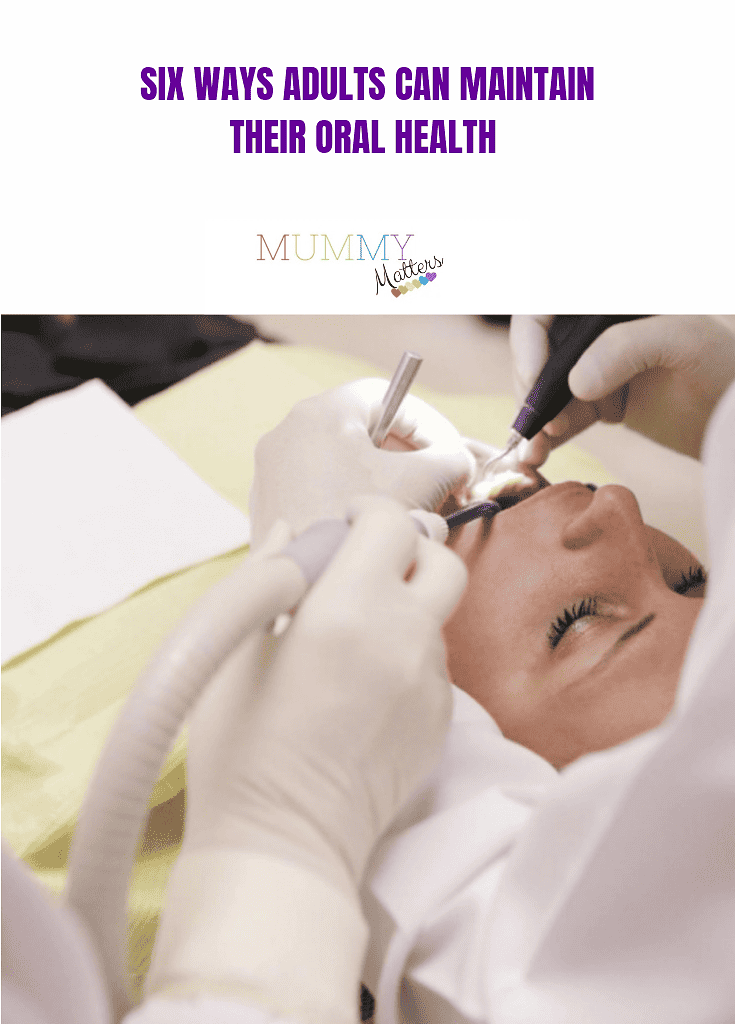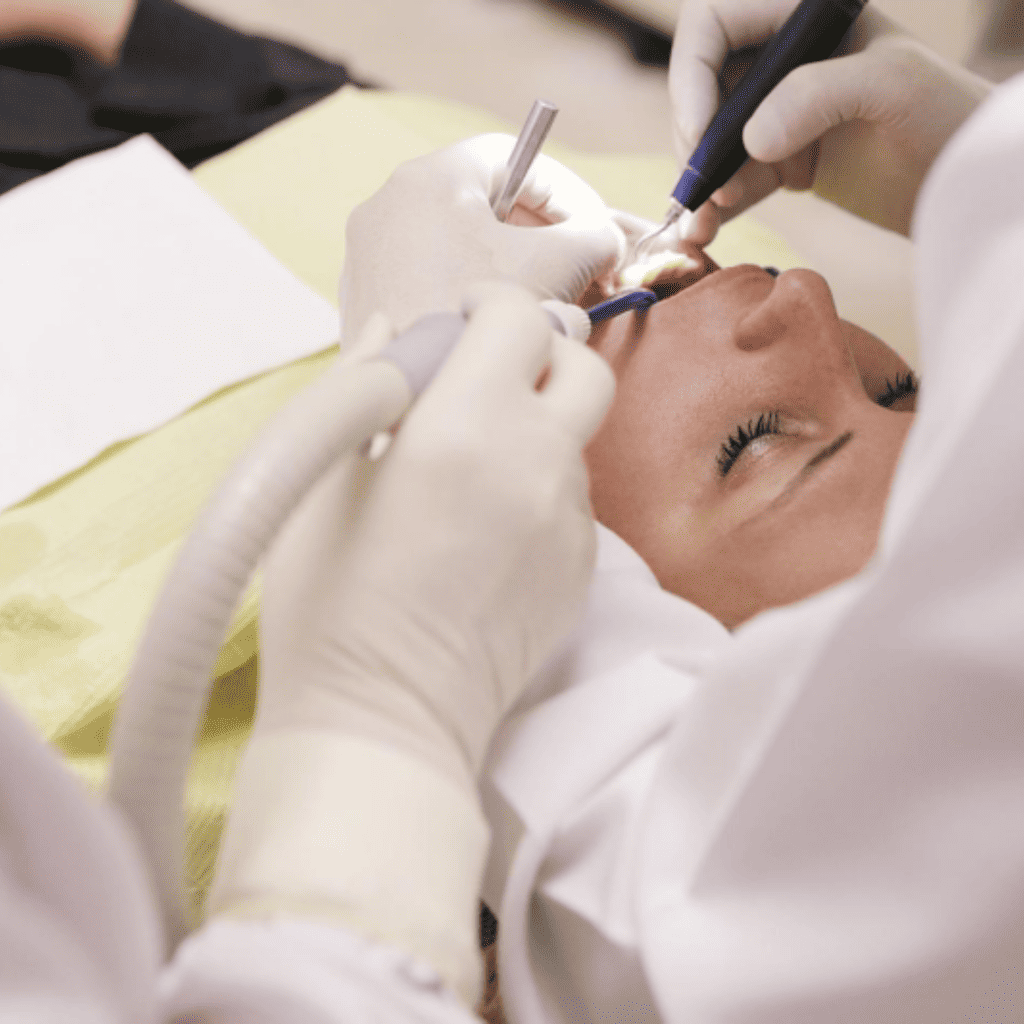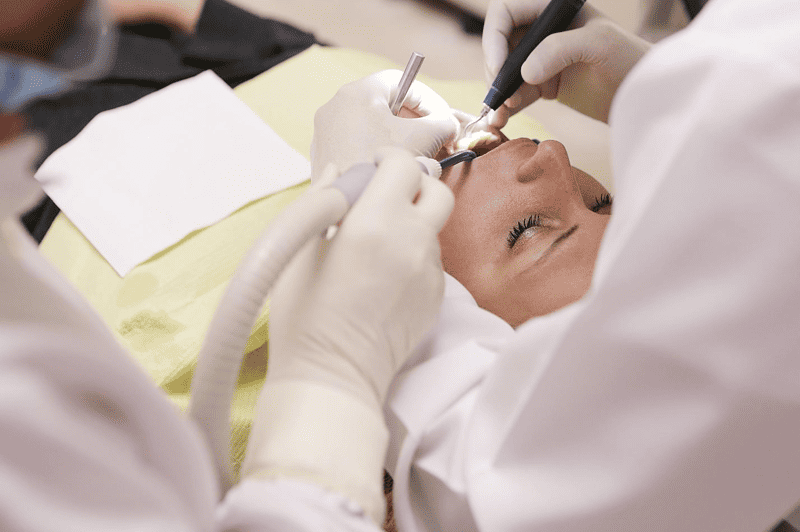Maintaining optimal dental health is crucial for adults of all ages. A healthy mouth contributes to a confident smile and significantly impacts overall well-being. From preventing tooth decay to reducing the risk of gum disease, proper oral care practices are essential for a lifetime of healthy teeth and gums.
Today, we will explore six essential dental health tips tailored to adults. Covering a range of practical advice and preventive measures, these tips will help you establish a strong foundation for oral hygiene and make informed choices regarding dental care.
We will delve into key topics such as effective brushing and flossing techniques, the importance of regular dental check-ups, and the significance of a balanced diet for dental health. Additionally, we will highlight the impact of lifestyle choices, such as tobacco use and alcohol consumption, on oral well-being.
By following these valuable tips, you can empower yourself to maintain excellent dental health, enjoy a radiant smile, and promote your overall quality of life.
Six Tips for Maintaining Your Oral Health
1. Visit Your Dentist Regularly
Regular dental check-ups and cleanings are essential for maintaining optimal oral health. Here’s why:
- Early detection and prevention: Your dentist can spot any dental problems early on if you go for regular check-ups. They can identify issues like decaying teeth, gingivitis, or oral cancer before they worsen and become more difficult to cure. Early intervention can help you stop future oral problems.
- Personalized treatment plans: When you visit a dentist, especially an orthodontist, and you have misaligned or crooked teeth, they recommend suitable treatment to straighten them and achieve a great smile. For instance, if your teeth are slightly misaligned, they may suggest clear aligners for adults, as they are invisible, temporary, and easily removable for eating and cleaning. Besides, your dentist can assess your oral health and develop a treatment plan accordingly.
- Professional dental cleaning: Even if you practice good dental hygiene at home, some parts of your mouth are challenging to clean with a toothbrush or floss. Plaque and tartar accumulation can result in various oral disorders, which a dentist can only remove.
- Oral hygiene guidance: Your dentist can evaluate your oral hygiene routines and advise on improving them at routine dental visits. They can explain how to brush and floss properly, provide appropriate oral care items, and answer any queries or concerns you may have regarding your dental regimen.
2. Brush your teeth twice a day
The calculus, microbes, and food fragments collected throughout the day can be successfully removed by cleaning your teeth for two minutes twice a day. Brush every part of your teeth, especially the exterior, inner, and chewing surfaces, using a soft-bristled toothbrush and fluoride toothpaste. Pay extra care to the gumline since plaque accumulation can cause gum disease. You can protect your tooth enamel against tooth decay by using fluoride toothpaste.
3. Floss daily
Flossing helps to avoid cavities and foul breath. You may efficiently clean those difficult-to-reach spots using dental floss or interdental cleaners, preserving the health of your teeth and gums. To remove debris, gently slip the floss between each tooth, bend it towards its base, and slide it upward and downward. It’s essential to be thorough but gentle to avoid damage to your gums. If the usual flossing is insufficient, alternatives like interdental brushes, water flossers, or floss picks can be helpful.
4. Use a Mouthwash
Mouthwash contains antimicrobial agents that help kill bacteria in your mouth, reducing the risk of oral disease. It reaches areas that a toothbrush or floss may miss. Additionally, using mouthwash with fluoride strengthens tooth enamel that helps prevent tooth decay and cavities. Mouthwash can also temporarily relieve minor oral irritations, such as canker sores. It freshens your breath and leaves your mouth feeling clean and refreshed. Choose a mouthwash that suits your needs, such as an alcohol-free formula if you have a sensitive mouth or one with specific therapeutic properties recommended by your dentist.
5. Maintain A Balanced Diet

A well-balanced diet ensures that the body receives the proper nutrients essential for oral health. For instance:
- Incorporating calcium-rich foods like milk, cheese, and yoghurt helps strengthen tooth enamel and maintain strong bones.
- Citrus fruits, with vitamin C, support the creation of collagen, keep gums strong, and prevent gingivitis.
- Additionally, eat food rich in vitamin D, as it’s essential for oral health.
- Avoiding excessive intake of sugary and acidic snacks and beverages is also vital for dental health. Additionally, alcoholic drinks often contain high amounts of sugar and acidic content, which can erode tooth enamel over time.
6. Avoid Tobacco and Alcohol
Excessive alcohol consumption can lead to dry mouth, which reduces saliva production. Saliva is crucial in rinsing away food particles and neutralizing acids, protecting teeth from decay. A dry mouth increases the risk of cavities, bad breath, and gum disease. Additionally, alcoholic beverages often contain high amounts of sugar and acidic content, which can erode tooth enamel over time.
Tobacco use significantly harms oral health. Smoking stains teeth, causes persistent bad breath, and increases the risk of gum disease and oral cancer. Smokeless tobacco products can cause gum recession, tooth decay, and leukoplakia (white patches in the mouth).
It is essential to understand the impact of alcohol and tobacco on dental health and take proactive steps to reduce or quit these habits. Regular dental check-ups and professional cleanings can help monitor and mitigate the effects.
Conclusion
Prioritizing dental health is crucial for adults to maintain their overall well-being and quality of life. Adults can prevent oral diseases, keep their natural teeth, and have a confident, pain-free smile by taking preventative measures that involve routine dental check-ups, regular oral hygiene practices, and lifestyle decisions. Recognizing the profound impact of oral health on systemic health, individuals must understand that taking care of their teeth and gums goes beyond aesthetics, extending to improved digestion, reduced risk of chronic conditions, and enhanced self-esteem. Investing in dental health today will yield long-term benefits, ensuring adults can maintain healthy smiles and lead fulfilling lives for years.



